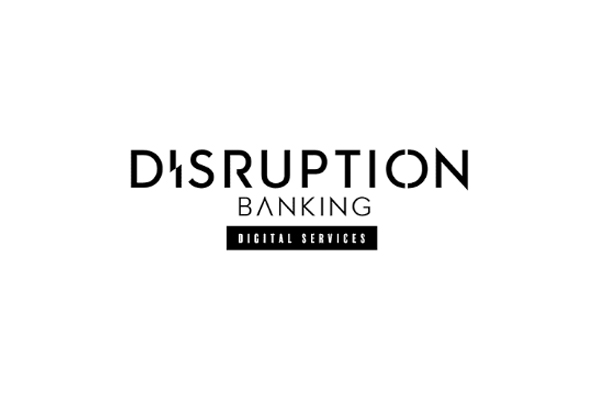Financial Services Outsourcing Philippines
KYC/AML, customer service, collections, back-office processing, and financial operations supported by secure, compliant Philippine outsourcing teams.
Secure, compliant financial services outsourcing in the Philippines supporting KYC/AML, fraud monitoring, disputes, payments operations, loan processing, and regulated back-office workflows.
 Authored by Ralf Ellspermann, CSO of PITON-Global, & 25-Year Philippine BPO Veteran | Multi-Awarded Executive | Reviewed and Verified by John Maczynski, CEO of PITON-Global, and Former Global EVP of the World's Largest BPO Provider on February 14, 2026
Authored by Ralf Ellspermann, CSO of PITON-Global, & 25-Year Philippine BPO Veteran | Multi-Awarded Executive | Reviewed and Verified by John Maczynski, CEO of PITON-Global, and Former Global EVP of the World's Largest BPO Provider on February 14, 2026
The 2026 Mandate: From Labor Arbitrage to "Risk & Intelligence Architecture"
In 2026, financial services outsourcing philippines is no longer a cost-saving measure; it is a critical resilience strategy. For mid-market banks and global lenders, the Philippines has become the primary hub for Agentic AI Orchestration—where human experts supervise autonomous systems to manage credit risk, compliance, and fraud in real-time.
Ralf Ellspermann, CSO, PITON-Global
The 2026 Performance Gap: Why Traditional BPO Fails
Legacy providers focus on "Headcount." In the 2026 financial landscape, headcount is a liability if it isn't augmented by Agentic Intelligence. PITON-Global identifies the top 1% of partners who have pivoted from simple transaction processing to Outcome-Based Financial Operations. We bridge the gap between "Manual Back-Office" and "AI-Native Execution."
Strategic Pillars of Financial Services Outsourcing Philippines
The "Linguistic Guardian" for Regulated CX
We eliminate "Compliance Drift." Our partners deploy high-IQ professionals who manage borrower support and investment inquiries with native-level English and a deep understanding of SEC, FINRA, and FCA mandates. Every interaction is monitored by AI for disclosure accuracy.
Predictive Fraud & AML Triage
We move from "Reactive" to "Pre-emptive." Your financial services outsourcing philippines hub will utilize forensic pattern recognition to identify synthetic identity fraud and sophisticated money laundering clusters before they penetrate your ecosystem.
Agentic Loan & Credit Orchestration
We accelerate "Time-to-Capital." Our vetted partners utilize autonomous agents to extract data, verify documents, and perform preliminary credit scoring, leaving only high-nuance "Exception Handling" to human analysts. This reduces origination cycles by 60–70%.
Critical 2026 Service Metrics
Performance Metric
Legacy BPO (2024)
Business Impact Signal
Institutional Governance: Zero-Trust Security for Finance
In 2026, financial data is the world's most targeted asset. PITON-Global ensures your financial services outsourcing philippines strategy is built on a Hardened Zero-Trust Framework. Analysts access core banking systems via Non-Persistent VDI and Biometric Multi-Factor Authentication (MFA). No PII, account data, or proprietary risk models are ever stored on local Philippine hardware, ensuring full compliance with PCI-DSS 4.0 and GDPR.
Financial Services Outsourcing Philippines: Strengthen Compliance, Improve CX & Reduce Operating Costs
The financial services industry faces growing regulatory requirements, increased consumer expectations, rising fraud threats, and intense pressure to digitize operations while reducing cost-to-serve.
Banks, fintech platforms, credit providers, and payments companies need operational scalability, precise back-office execution, and 24/7 support capabilities — all delivered with strong security and compliance controls.
This is why the Philippines has become a global leader in financial services outsourcing, providing specialized talent for:
- KYC/AML
- Fraud monitoring
- Customer service
- Loan processing
- Collections
- Underwriting support
- Back-office financial operations
- Payments & dispute handling
- Reconciliation
- Account maintenance

PITON-Global helps financial institutions connect with top-tier Philippine BPOs that deliver accuracy, scalability, and compliance.
CEO Insight: Why Financial Services Companies Outsource to the Philippines
Financial services outsourcing requires a combination of accuracy, compliance discipline, and exceptional customer support. The Philippines excels in all three. Our vetted partners support everything from KYC and fraud monitoring to lending operations, payments processing, and financial customer service — enabling institutions to scale securely and cost-effectively.
John Maczynski, CEO, PITON-Global
Why Financial Services Outsourcing to the Philippines Is Growing Rapidly
1. Deep Domain Expertise in Financial Processes
Philippine BPO teams specialize in:
- Banking operation
- Payments & card support
- Loan processing
- Fraud & risk
- Collections
- Regulatory workflows
2. Compliance-Centric Culture
Essential for financial institutions.
Teams are trained in:- KYC
- AML
- OFAC
- PCI-DSS
- Data privacy standards
- Regulatory audit preparation
3. 24/7 Global Support
Ideal for:
- Digital banks
- Global fintech platforms
- Payments companies
- Fraud monitoring teams
4. Significant Cost Savings (40–60%)
Without reducing quality or compliance rigor.
5. AI-Enhanced Financial Operations
- Fraud anomaly detection
- Automated document extraction
- KYC verification automation
- Risk scoring
- Dispute classification
6. High English Proficiency & Communication Clarity
Critical for high-stakes financial conversations.

Financial Outsourcing Capabilities (Front & Back Office)
Customer Service for Financial Institutions
- Account inquiries
- Product information
- Payment status
- Transaction support
- Card activation
- Billing & statements
- Digital banking support
- Dispute resolution
KYC (Know Your Customer) Support
- Customer identity verification
- Document validation
- Data entry
- Sanctions list screening
- Watchlist checks
- Enhanced due diligence support
AML (Anti-Money Laundering) Support
- Transaction monitoring
- Alert review
- Suspicious activity identification
- CTR & SAR draft preparation
- Escalation routing
- Case investigation support
Fraud Prevention & Risk Support
- Real-time fraud alert monitoring
- Identity verification
- Transaction anomaly detection
- Chargeback support
- Behavioral analysis support
- Rule-based triage
Loan Processing & Lending Support
Loan Application Support
- Data verification
- Document collection
- Credit scoring support
- Eligibility checks
- Application review assistance
Loan Boarding
- Data entry
- System setup
- Document indexing
Post-Funding Support
- Payment posting
- Loan modifications
- Customer inquiries
Underwriting Support
- Risk data collection
- Verification of documents
- Credit report retrieval
- Income verification
- Collateral document review
- Exposure analysis
Collections & Recovery Support
- Soft collections
- Delinquency outreach
- Payment arrangement support
- Reminder notifications
- Skip tracing support (legal-compliant)
Back-Office & Financial Operations
Payments & Transactions Support
- Payment posting
- Transaction reconciliation
- ACH & wire support
- Chargeback assistance
Accounts & Reconciliation
- Ledger reconciliation
- Error resolution
- Exception handling
- Audit trail preparation
Financial Data Processing
- Record updates
- Report generation
- Compliance documentation
AI-Enhanced Financial Operations (2026-Ready)
AI for KYC/AML
- Document extraction
- Identity verification
- Pattern detection
- Enhanced screening
- Automated KYC case classification
AI for Fraud Monitoring
- Real-time anomaly detection
- Behavioral analytics
- Risk scoring
- Automated alerts
AI for CX
- Sentiment detection
- LLM-powered agent assist
- Automated FAQs
- Real-time script recommendations
AI for Back-Office
- OCR for financial documents
- Automated data validation
- Compliance summarization
Compliance & Security
Our BPO partners maintain industry-leading compliance frameworks:
Requirement
Purpose
Implementation
- PCI-DSS
- Payment card security
- Secure payment workflows
- SOC 2 Type II
- SaaS/financial security audit
- Third-party validated controls
- ISO 27001
- Information security
- Risk mgmt + access controls
- GLBA Awareness
- U.S. financial privacy
- Team training
- OFAC Checks
- Sanctions compliance
- Sanctions compliance
- GDPR
- EU markets
- Data minimization & controls
Financial services require strict compliance — our partners exceed expectations.
Financial Services Case Studies
Case Study 1: Digital Payments Company
Challenge:
Fraud alerts increasing
Solution:
Dedicated fraud operations & monitoring team
Results:
- 47% reduction in false positives
- 30% improvement in fraud resolution time
- Stronger risk controls
Case Study 2: Regional Bank
Challenge:
Overflow in customer service calls
Solution:
Multichannel financial support team
Results:
- AHT reduced 22%
- CSAT improved from 84% → 93%
- Significant cost savings
Financial Segments We Support
- Banks
- Credit unions
- Neobanks
- Online lenders
- BNPL providers
- Mortgage platforms
- Credit card issuers
- Payments processors
- Financial marketplaces
- Money transfer companies
- Fintech SaaS
- Credit bureaus
- FX & remittance companies
Financial Services Outsourcing Rates (Philippines 2026)
Function
Rate (USD/hr)
AML Monitoring
$12–$16
Fraud Support
$12–$16
Loan Processing
$12–$16
Underwriting Support
$12–$16
Reconciliation & Back-Office
$8–$12
Collections
$12–$16
Team Leads
$14–$18
Typical savings per 25-agent team: $450K–$900K annually
Why Financial Companies Choose PITON-Global
- 25+ years of financial outsourcing strategy
- Deep understanding of compliance-driven workflows
- Vendor-agnostic, independent advisory
- Access to top-tier, secure Philippine BPO providers
- Proven success with banks, lenders & fintech companies
- No-cost, high-impact vendor sourcing
We help financial services companies scale with accuracy, compliance, and efficiency.
Working with Ralf and the PITON-Global team was one of the best decisions we made during our outsourcing journey to the Philippines. Their deep understanding of the local BPO landscape, combined with their hands-on, consultative approach, made what could have been a complex process feel seamless. Ralf took the time to truly understand our business needs and connected us with providers that were not only cost-effective but also aligned with our quality and compliance standards.
James Gionfriddo, SVP, Global Outsourcing, TSYS
FAQS ABOUT FINANCIAL SERVICES OUTSOURCING TO THE PHILIPPINES
What types of financial services can be outsourced to the Philippines?
How does financial services outsourcing to the Philippines enhance regulatory compliance?
What are the primary business benefits of outsourcing financial services to the Philippines?
How do Philippine BPO providers ensure data security and protection for financial institutions?
What should enterprise decision-makers consider when choosing a financial services outsourcing partner?
In The News
The FinOps Revolution: How Philippine Technical Outsourcing is Solving the Fintech Profitability Puzzle

Fintech Outsourcing Philippines: How 2026 Industry Shifts Are Redefining BPO Strategy

Fintech Outsourcing Philippines: The 2026 Guide to BPO Success

The Digital Guardians: How AI and Filipino Expertise Are Revolutionizing Fintech Fraud Prevention

Fintech Outsourcing Philippines: Leveraging Tech and Blockchain to Transform Support

Fintech Support Outsourcing Philippines: Next Level Customer Experience (CX)

Fintech BPO Philippines: Powering the UAE’s Digital Innovators

Outsourcing Philippines: The role of advanced technology in fintech support

Fintech Outsourcing: How Cutting-Edge Tech is Changing the Face of Front and Back-Office Customer Support

Fintech Support Outsourcing Philippines: The Perfect Business Equation

Call Center Industry Philippines: Fintech Outsourcing Capital of the World

Fintech Outsourcing Philippines: The Agentic AI Revolution in Neobank Support

BPO Philippines: Fintech Outsourcing

Fintech Outsourcing Philippines: The Agentic AI Revolution in Neobank Support

Financial Services Outsourcing Philippines: The AI Hybrid Advantage

Philippines Emerges as Financial Services Outsourcing Powerhouse Amid Regulatory Pressures

Financial Services Outsourcing to the Philippines: Why UK Banks, Insurers, and Fintechs Are Re-thinking BPO Strategy

Banking Operations Outsourcing Philippines: How US Financial Services Firms Are Leveraging BPO for AI-Driven CX and Regulatory Compliance
Secure, Compliant Financial Services Outsourcing in the Philippines
Source BPO partners experienced in banking, payments, lending, and financial operations—validated for data security, regulatory compliance, and operational resilience.
Knowledge Center

Financial Services Outsourcing Philippines: AI-Driven Transformation of Banking, Fintech & Financial Operations [2026 Guide]

Banking Outsourcing Philippines: AI-Integrated Banking Operations for Risk, Compliance, and Customer Experience [2026 Guide]

Financial Services Compliance in Philippine Call Center Operations

Cybersecurity in Financial Services Outsourcing: Protecting Client Data in an Era of Increasing Threats

Financial Services Outsourcing Philippines: Transforming the Global Financial Landscape
EXECUTIVE GOVERNANCE & ACCURACY STANDARDS
Authored by:

Ralf Ellspermann
Founder & CSO of PITON-Global,
25-Year Philippine BPO Veteran,
Multi-awarded Executive
Specializing in strategic sourcing and excellence in Manila
Reviewed and Verified by:

John Maczynski
CEO of PITON-Global, and former Global EVP of the World’s largest BPO provider | 40 Years Experience
Ensuring global compliance and enterprise-grade service standards
Last Peer Review: February 14, 2026









